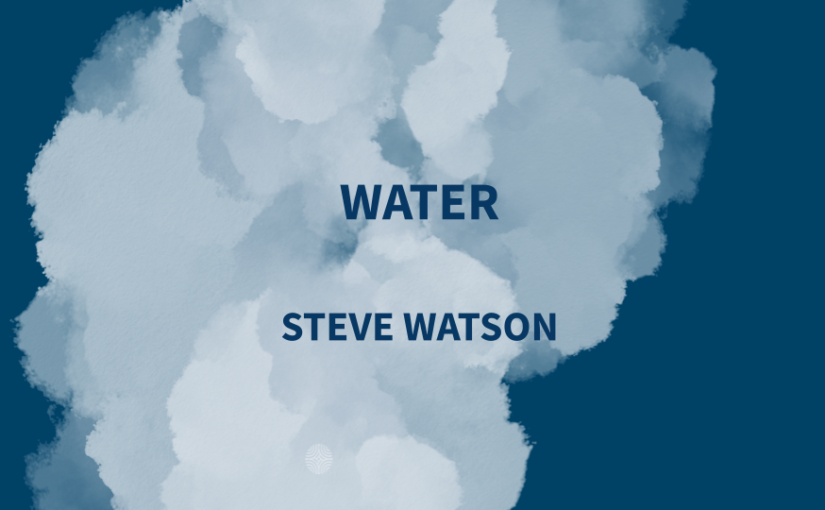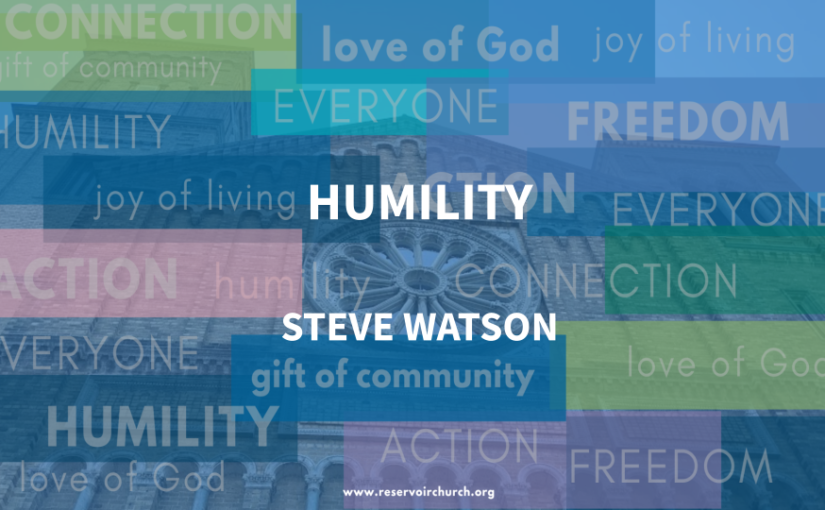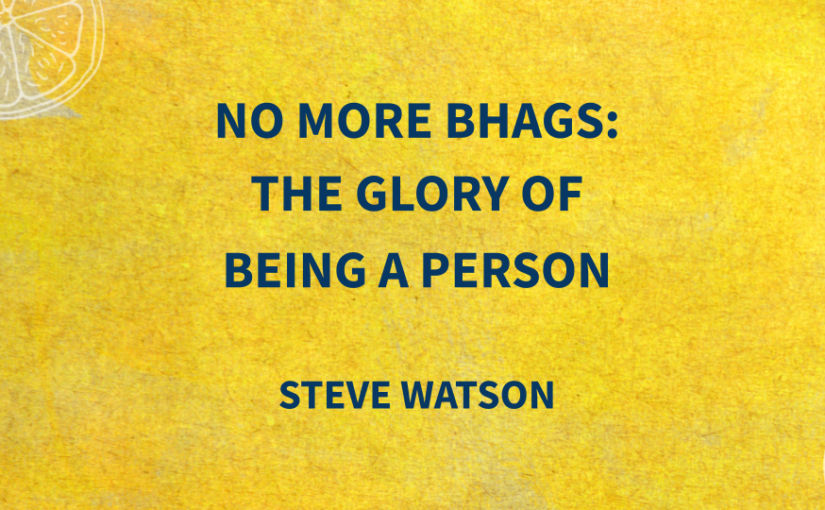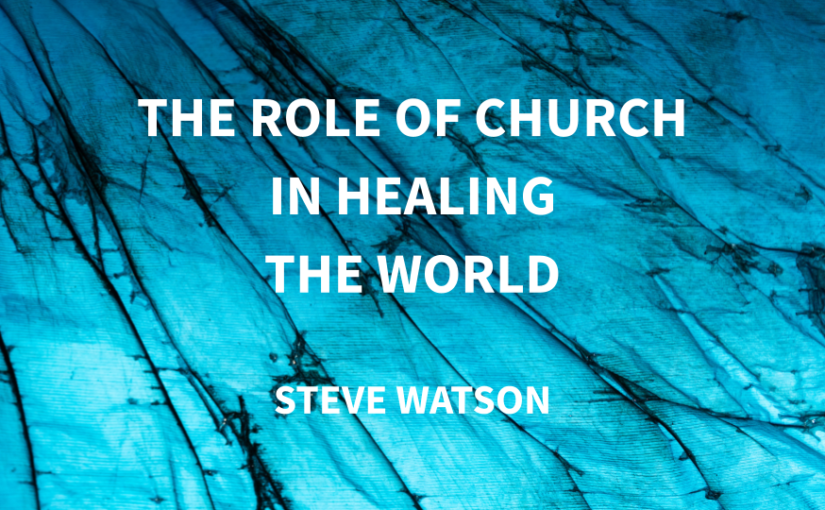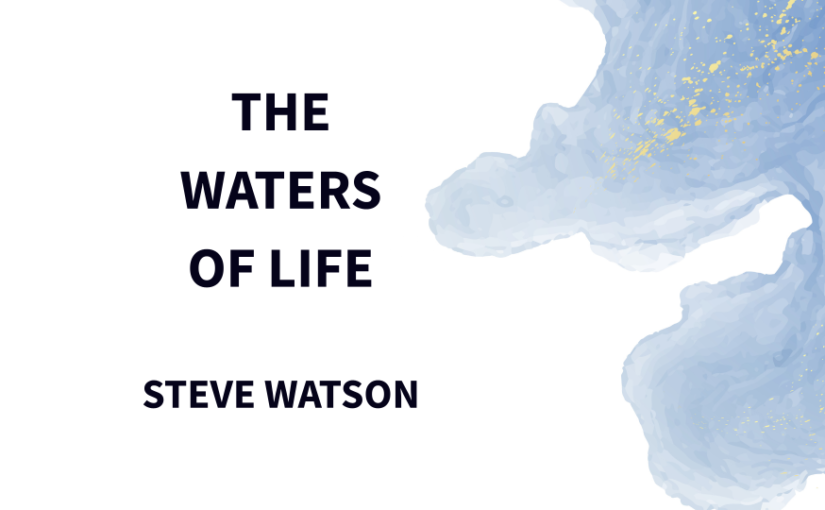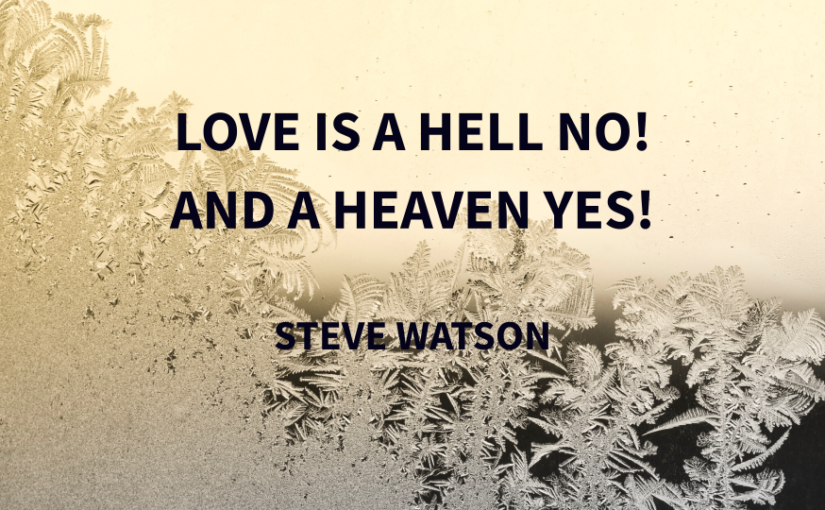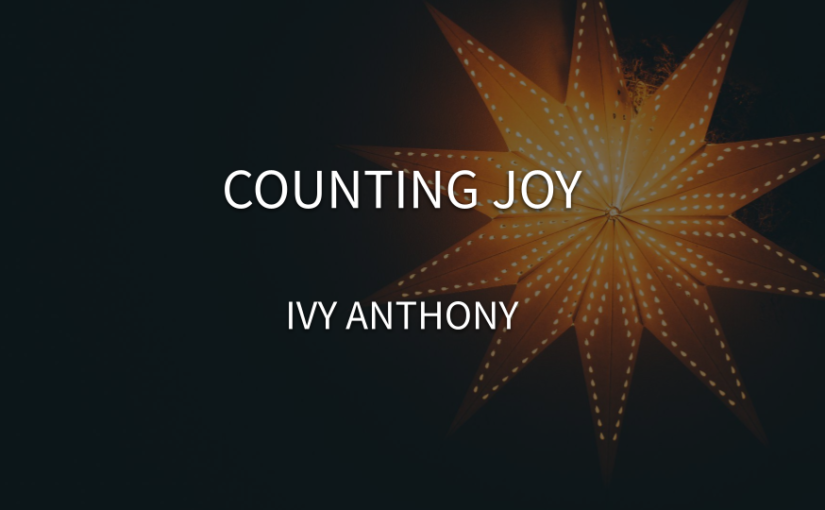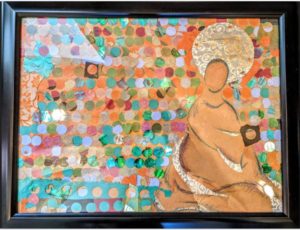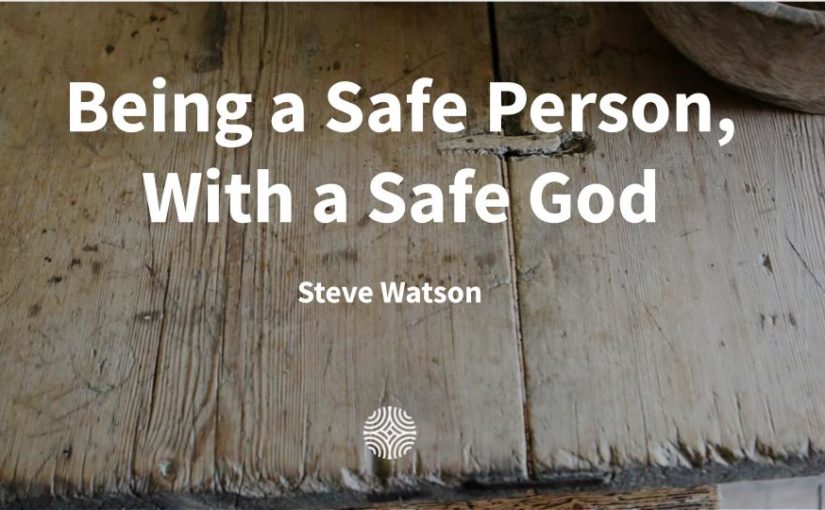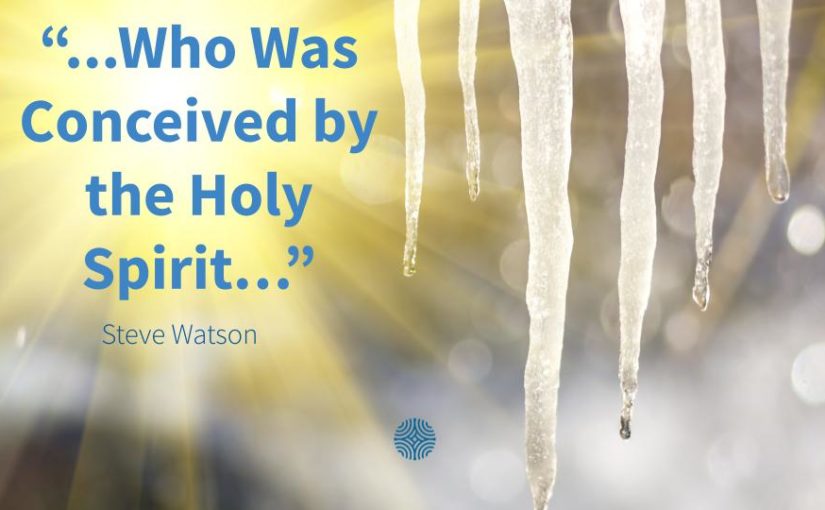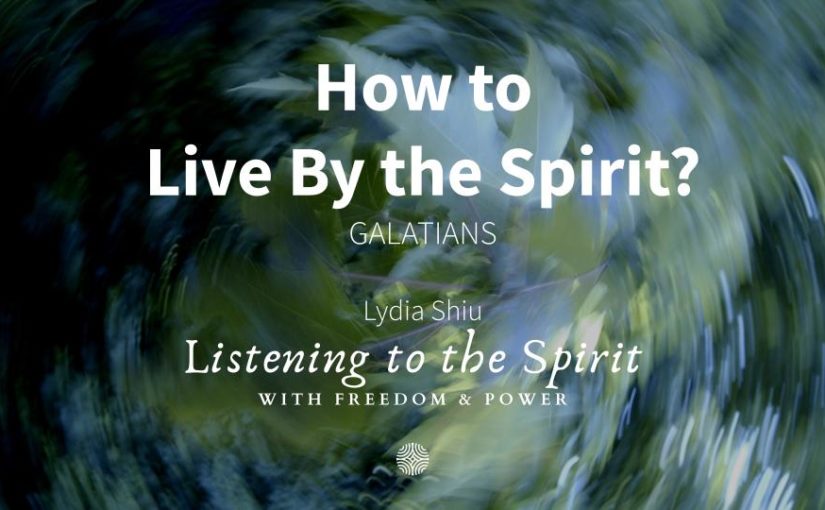Earlier this fall, someone from our community – Meredith – was baptized down the road from here in Mystic Lake. She hadn’t been baptized before and really wanted this ceremony, this blessing, before launching on a big new venture in her life that would take her away from this community and this city…at least for a while.
For some reason, this had me thinking about another need to get baptized moment I experienced years ago. I was helping lead a weekend retreat off site by a different lake. It was winter time, or close to it, and we didn’t really go outside at all, let alone down to the waters. But someone at the retreat that I knew told me:
Steve, my friend wants to get baptized. Can we do that?
And I said:
Sure, I love baptizing people. Let me talk to them and we’ll set something up back at the church in a few weeks.
And he was like:
No, he needs it now. And there’s a lake outside, can’t we do that?
At first I thought: It’s too cold. You know how cold it is, right?
And I asked:
What’s the rush? It’s baptism, not a trip to the hospital.
But my friend explained a little, and later that day his friend much more why this was important. This guy’s life was a mess at the moment. There’d been some pretty big failings and he was trying to make things right with his spouse and some other people, and getting baptized was a way he felt like he could try to make things right with God and with himself first.
That made sense, so we talked and prayed, and walked over to the nearly freezing lake, took off some clothes, and in we went to those bracing, cleansing waters. It was fun. It was memorable.
That memory has gotten me doing something quirky. Once a week, I’ve been going to one of our local lakes in my bathing suit, and throwing myself in. I don’t own a wetsuit. I don’t stay in long. But for reasons I can only partly explain, I’ve been drawn to the waters, as some kind of self-baptism if that’s a thing, a kind of bracing, cleansing, immersive experience of God.
Today, I ask what’s behind all these experiences.
- Why are we so drawn to water?
- How does it speak to us and connect us with the divine?
- What does it mean when scriptures say that God is water?
- And are there ways we can more regularly be aware of God’s revitalizing, watery powers for us all?
This is the 4th of 6 weeks where we’re exploring parts of my friend Rabbi Toba Spitzer’s amazing book God is Here. It’s so good. If you read books, you owe yourself a chance to read this one.
Let’s take a tour through three of the many Biblical passages Toba highlights.
We start at the beginning.
Genesis 1:1-2 (Everett Fox)
At the beginning of God’s creating of the heavens and earth, when the earth was unformed and void, darkness over the face of the Deep, rushing-spirit of God hovering over the face of the waters.
This is a very literal translation by Everett Scott, a Hebrew scholar and poet who captures the feel of the language of the Hebrew Bible. We’re invited to imagine the primordial earth, long before humans, long before dinosaurs, long before there was any life at all.
The earth, it says, was watery chaos – the deep waters from which we know all life emerged. And God was like a mighty spirit-wind flying over and through and out of that watery deep. It’s a reminder of the waters and the depths from which we come. And there’s this image of God hovering over the deeps, calling for life to emerge.
Water is the source of life. And God is in the water.
Maybe this is why I feel God with me whenever I dunk myself in each week. In that buoyancy of the water, I’m always reminded I’m not alone. Like a little kid in my mum or dad’s arms, I feel upheld, supported. God is with me. And that feels good.
We skip forward a couple of books to Leviticus, and the beginning of ancient Israel’s priesthood.
Leviticus 8:6 (Common English Bible)
6 Then Moses brought Aaron and his sons forward and washed them in water.
The priests are there to pray for the people and help them pay attention to God, stay connected to God. And part of the way the priests are set aside for what they do is that they are washed ceremonially in water. It’s not a bath so much as a spiritual cleansing.
This ritual cleansing has morphed over the centuries and millennia in Judaism. In Christianity, it became the ceremony we call baptism.
When I baptize adults, I always ask them privately, in sacred confidence, if there is any sin they want to confess – maybe a big shame or regret they hope they can carry lighter, knowing God’s forgiven them and can empower new life in them.
Sometimes they’re like: naw, I’m good.
Which is fine, in our tradition you this kind of confession to another human is always voluntary, never required. Usually, though, people appreciate the opportunity. They talk about mistakes or regrets, sometimes unburdening very big things, a huge moral failing as a spouse or a friend or parent or any number of other things.
Sometimes, it’s not their sin they want to confess, but wrong done to them, a huge hurt they want to know more healing from God in. Either way, it’s a rare chance to be really honest and to be assured that a God of new life and second chances is with us. Which is always good news, right, because life’s long and hard, and we need all the love, all the healing, all the chances.
When I go into the waters each week, I try to make a confession first too, to tell God where I need cleansing. Sometimes it’s a word I wish I hadn’t said, a thing I wish I hadn’t done, but it’s broader than this too. I call to mind all the crap and muck that litters my mind and heart – a hurt here, a regret there, an anxiety or a ruminating thought I just can’t shake, and I’m like God:
Could you bathe that out of me. Wash my mind, my heart, help me walk more free?
You know how usually you take a shower just out of habit or part of your regular hygiene and all. But sometimes you take a shower to shake off a bad feeling or a bad experience or state of mind, right? And the shower helps you clear your head, you sometimes come out unburdened, more free. That’s what’s happening to me too.
So with the priests, who needed their heads and their hearts clear to serve God and the people. Cleansing waters.
And then the last book of the Torah, the book of speeches along the Jordan River, before entering the promised land. Moses says:
Deuteronomy 8:7 (Common English Bible)
the Lord your God is bringing you to a wonderful land, a land with streams of water, springs, and wells that gush up in the valleys and on the hills;
Water’s God’s abundance and vitality. It’s the sign of what I say almost nightly at dinner:
Thank you God that there is more than enough.
Here the water is the source of crops to eat and wells for drinking. It’s hope for life for these tribal people as they cross the Jordan, filled with hope.
This past summer, I went to the Jordan River too.
A mentor of mine had encouraged me to think of my trip to Israel and Palestine as a pilgrimage, to ask myself what am I bringing to this land and what am I hoping to find there?
And in asking that, what came to mind were all these sorrows in my life I was carrying. A couple of the sorrows were particular to me and to relationships in my life, different forms of grief and loss. And then many of the sorrows were those of people I love, but that I knew close and well enough that I felt the weight of them too.
And I thought, I need to bring my sorrows on pilgrimage with me, and I need God to meet me in them. Maybe I don’t need God to take them away, like trying to use God to not feel pain or grief that is right and healthy to feel. That’s called spiritual bypassing, when we try to use God or faith or religion to avoid hard things, and that doesn’t make us lighter people or bigger people, just shallower.
What I wanted wasn’t pain relief, it was integration, it was hope. I needed help in carrying these sorrows. I wanted a deeper faith that God was in the sorrows too, that God was on the scene to help.
So I filled a prescription bottle with tiny bits of paper with a couple of words on each representing these sorrows.
And while the other pastors I was traveling with were busy getting ready to rebaptize themselves in the Jordan River, I waded up to my knees downstream, and one by one, I held those little slips of paper underwater, kind of baptizing the sorrows, you could say. And I asked Jesus, hold this one, and hold this one, and hold this one. We all need your help.
And you know what happened? Nothing. It was an act of faith, and sometimes with acts of faith, you feel something and sometimes not at all, and this was one of those not at all moments. But I was like:
Well, I’ve done what I wanted to do, so I said thanks, God, and went and watched my colleagues have fun dunking each other in the river.
A few days later, though, when I was praying up at the temple mount in Jerusalem, something broke open in me. And on my knees by that ancient wall, I just wept and wept, like I haven’t in years.
Like a purging of grief or something, tears pouring out as I thought of myself and all these other people in my heart, all these sorrows. I felt connected, like I stand with a large and mighty community of faith, running back through our spiritual ancestors all the way to Jesus and beyond. And I felt too:
God, you’ve got it, don’t you? You’re here with all of us, all these sorrows, and you are very much for us all. One way or another, we’re gonna be alright, aren’t we?
I feel a bit of that energy and strength each week as I get out of the waters I’ve been throwing myself into. Not pouring tears again like that, but still, feeling cleansed and connected and strengthened. Maybe it’s the presence of God, maybe it’s just the cold water submersion, but I feel more alive every time I do it.
I’m not alone. In our last Board meeting, we talked about this God is Here series. I shared that we’d be looking at some of the Old Testament’s non-human metaphors for God. I named some of them – rock, place, voice, fire, cloud, water, and so on – and asked them which spoke to them most about God. And the most popular was water.
One person talked about going to the ocean to see just how big and beautiful it is, just like God. The ocean is always big enough, my therapist tells me. It’s true, and so it is with God.
Another person talked about how different it feels to be under water – swimming, diving – and how those are the times he most experiences God.
The scriptures tell us we come from water. We are cleansed by water. We owe our lives to water, and in so many ways, we are revitalized by water too. In all this and more, God is with us. God is with us in the waters.
And maybe that’s the sermon… that all the best that water is, God is too. And the water helps us know it.
But here’s the thing. One more bit. Some part of us knows all this already. And yet the experience can be hard to access.
I know that when I’m tired or low on energy, the best thing to do next is drink a tall glass of water. Because unless you’re one of those obsessive hydrators who carries around your own half gallon jug, who of us drinks enough water?
I know this, but when my energy’s a little low, I’m more likely to grab one of the Halloween candy bars lying around, than I am to hydrate.
Am I alone?
And I know that for me – may not for everyone – but for me, my days go best when they start with prayer. I have some scriptures, some written prayers I like to read slowly. I meditate on bits of the gospels and the psalms. I hold my own needs before God and the needs of a whole bunch of people in my life and people in this community. I review my day behind me and my day before me, asking God for insight, direction, vision.
I’ve been praying for decades, and this way of connecting with God is familiar to me. It centers and grounds me, gives me more hope and purpose, in other words, I like doing it. It feels good. It helps me.
But many mornings of my life, I make my coffee, and sit down, and half an hour later, I realized I’ve checked three social media sites, and two news outlets, and my email and my online banking balance, but I haven’t prayed at all. And it’s time to get my kids to school and get on with my day. And I don’t feel energized at all.
Do you have this version of this, I wonder. Knowing what brings you life, but not going there? Or knowing specifically what helps you connect with God, but settling for substitutes?
The scriptures name this phenomenon really well too, and they associate this too with God as water.
Jeremiah 2:10-13 (Common English Bible)
Look to the west as far as the shores of Cyprus
and to the east as far as the land of Kedar.
Ask anyone there:
Has anything this odd ever taken place?
11 Has a nation switched gods,
though they aren’t really gods at all?
Yet my people have exchanged their glory
for what has no value.
12 Be stunned at such a thing, you heavens;
shudder and quake,
declares the Lord.
13 My people have committed two crimes:
They have forsaken me, the spring of living water.
And they have dug wells, broken wells that can’t hold water.
The prophet is so confused. It’s like, well, there’s this God we call the Spring of Living Water. Yeah, fountain God, so good, that you drink from God and you are glorious – more alive, vibrant with inner beauty and joy.
And then people are like,
Oh, yeah, but I have this plastic toy god I kind of like playing with instead.
Or like,
Oh yeah, spring of living water is over here, but I’m going to dig a ditch in this bit of sand and see what I get there instead.
It’s odd, but it’s also just what we do.
We’re drawn to habits of living that don’t satisfy us and make us alive. And we’re drawn to what the Bible calls idols, stuff we look to for God-sized security and help, that increasingly demands our time and devotion, while decreasingly rewarding us at all.
Addictions are famously like this – clinical addictions of various kinds but even sort of addiction-lite, like compulsively scrolling on our phones, or distractedly numbing ourselves out with food or fantasy or whatever. Our obsessions with money, with stuff that we think will make us secure or happy are like this too.
We’re habitually drawn away from God because idols have advertisers – like buy more, eat more, consume more, save more, worry more, whatever.
But you know what’s cool? Even in the busy, weird, distracting world of ours, and even in these times where drinking from God can seem abstract or hard, Spring of Living Waters hasn’t gone anywhere.
The Deep still calls to us. Springs and wells still gush up in the valleys and the hills. God of the Waters is still here, eager to enliven, to cleanse, to revitalize, and help us follow God’s flow into lives of greater faith, hope, love, joy, and justice.
Two practices I commend to you that can help, both drawn from Rabbi Toba’s wonderful chapter.
The first is so easy, and you can do it several times a day. The second will take a little time and intention.
The first is water blessing. Anytime you make contact with water – when you drink water, when you wash your hands, when you shower, or even when you jump into a cold lake, or walk by the ocean, or drive on a bridge over the river, you see the water and you say:
Thank you, God, for the water that gives us life. I bless you, Source of Life and Spring of Living Waters.
That’s it – thank you, God, for the water that gives us life. I bless you, Source of Life, and spring of Living Waters. And you see what that prayer does in you, what it grows in you.
The second is called Going with the Flow. In this practice, you recognize that life is like a flowing stream. It’s somewhere now, and it’s going somewhere too. And we can make choices about how we navigate the flow of our present, and the flow of our future too.
And God has a flow too. In one of the many water scriptures we didn’t get to today, the prophet Amos cries out:
Let justice roll down like waters, and righteousness like an ever-flowing stream.
The flow of God is toward greater love and greater justice, not just for me and mine, but for all of us.
And so in going with the flow, we pay attention to the flow of our lives. We ask if it is aligned with our own values and hopes, and if it’s aligned with the best of what we know of God.
We take some time to ask:
Where am I?
- How am I spending most of my time, money, and attention?
- What fills my schedule, fills my heart, fills my thoughts?
- And is that aligned with who I believe myself to be or hope myself to be?
And if not, you can have a chat with God or with yourself about that and see what you want to do.
And then we ask ourselves:
Where am I going?
- What do I want to be true in two months, at the end of the year?
- How about the end of this decade?
- How about the end of my life?
- Will my life as is get me there the way I’m going?
- Or do I need to make some different choices?
When I did this exercise, I had two very specific things I wanted to be true by the end of this year. And they weren’t going to be in reach the way I was going. So I’m making some changes to my time to make one of them possible, and I’m stretching my deadline a bit on the other.
And that was just looking at the next two months. Looking at where I’m going further out yields even more insight, more hope, more ideas and prayers.
Life’s too good and too short to set ourselves up to live with regret. Better to find our best flow, God’s flow sooner rather than later.
And God’s too good. The spring of living waters is too good to not turn and drink. My friends, the water is good. It’s there within reach. Take hold, drink deep, dive in.


